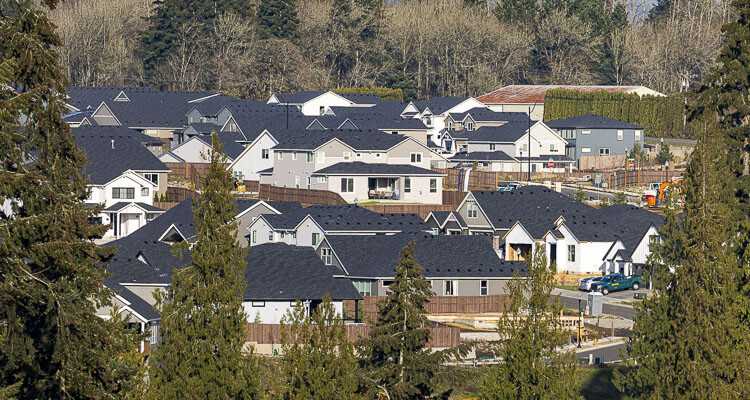
Mark Harmsworth of the Washington Policy Center says the bill will, in the long term, only continue to increase the cost of affordable housing
Mark Harmsworth
Washington Policy Center
House Bill 1389 (HB 1389), otherwise known as rent control and similar to House Bill 1124 (HB 1124), will have a devastating effect on the affordability of rental housing and will increase rents.

There have been numerous studies that have shown the effects of rent control in other states. All point to a short-term positive impact, but long term, rent control has caused a decrease in affordability, lower quality rental properties and an increase in rents. The Brookings Institute published a report in 2018, which is still relevant today, that clearly shows that over time, rent control has the opposite effect to the original intention, which is to keep rents as low as possible.
Similar legislation has previously been passed in other states and now, given enough time has passed, the real impact is becoming apparent.
And it’s not good news for renters.
San Francisco, which enacted rent control in 2019 has seen a 15% reduction in rental housing availability with condo conversions falling 25%. Similar results have been seen in other cities where rent control has been implemented, such as Cambridge, Brookline, Boston and Minneapolis/St. Paul.
St. Paul saw developers pull out of development projects since they were no longer profitable. With permit applications down 80%, the St. Paul City Council, in response, realizing the dire situation rent control was creating, quickly voted in September 2022 to change the rental cap limits and create exemptions for developers to try to salvage the situation.
National Public Radio, in a 2019 interview with Rebecca Diamond, an economist from Stanford University, called out the long term, detrimental effect of rent control. Diamond explained property owners moved money out of the rental market, decreasing housing availability by 25% which drove up the costs of rent. The fix, according to Diamond, is to increase the amount of available housing stock.
In Washington, the passage of the Growth Management Act (GMA) in 1990, restricted buildable lands which has reduced the number of new homes that have been built. The housing crisis in Washington was partially created by public policy and now it’s time to update and reform the GMA. Simple changes to the GMA by modifying the arbitrary growth boundaries and population density goals set by the Puget Sound Regional Council (PSRC), will increase available land and the ability for more affordable housing to be built.
House Bill 1389 and rent control will not solve housing affordability in either the ownership, rental or commercial real estate markets. It will, in the long term, only continue to increase the cost of affordable housing.
Mark Harmsworth is the director of the Small Business Center at the Washington Policy Center.
Also read:
- Letter: ‘There will be consequences’Hazel Dell resident Bob Zak criticizes Democratic lawmakers for advancing ESSB 5181, arguing it undermines parental rights and defies biblical principles.
- Op-Ed: La Center Schools — Committed to families and their childrenIn a public letter, the La Center School Board and Superintendent Peter Rosenkranz affirm their commitment to supporting families and honoring both state law and community values amid state-level scrutiny.
- Letter: Mayor blames others on homelessness problem in Vancouver while she has enabled a lawless encampment zoneVancouver resident Peter Bracchi urges city leaders to enforce laws and end permissive policies that have allowed unsafe encampments to overrun public spaces near the Share House.
- Letter: ‘Look it up for yourself’Camas resident Anna Miller encourages skeptics of Elon Musk’s claims about government waste to do their own research using official resources.
- Opinion: Defending the indefensibleNancy Churchill argues that Washington’s lawsuit against a sheriff cooperating with ICE reveals a deeper political agenda that puts public safety at risk.










